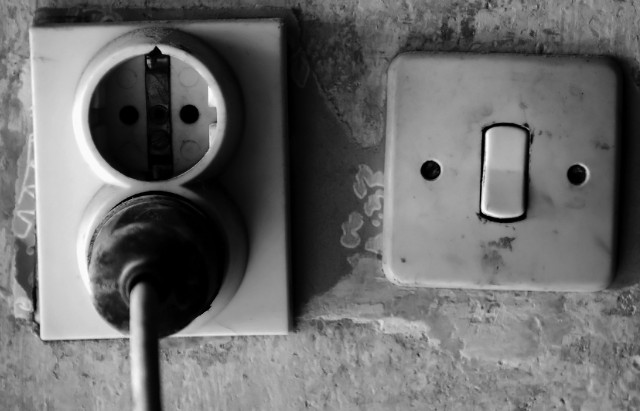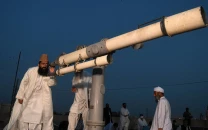Energy crisis: Rather than reduce subsidies, govt increases power outages
PEPCO refuses to focus on reducing inefficiency, theft.

Energy crisis: Rather than reduce subsidies, govt increases power outages
In order to reduce the absolute rupee amount it spends on power subsidies, the government is planning on generating and supplying less electricity through the state-owned Pakistan Electric Power Company (Pepco), a move that is likely to result in even longer power outages throughout the country.
Sources told The Express Tribune that, rather than improving its collection of utility bills or pass on the cost of unpaid bills to its paying customers, the government will simply reduce total production so that the final bill for subsidies to the power sector is reduced.
As part of the Pepco’s ‘preliminary business plan’ for fiscal year 2011, the government-owned utility had planned on generating 103 billion kilowatt-hours (kwh or units) in May last year, which had taken into account utilising the maximum amount of the country’s power generation capacity and significantly ameliorating the electricity shortage.
However, in order to generate enough revenues to cover the costs of those units produced, the government would have to spend Rs252 billion subsidising the power sector, since state-owned utilities do not charge the full cost of production.
In order to reduce that amount, Pepco decided to reduce the total power production rather than remove inefficiencies in the national grid. The government decided to reduce production to 93 billion units, which it expected would reduce the total tariff differential to Rs196 billion, some of which the government planned to finance through tariff hikes and the rest through subsidies.
For the fiscal year that ended June 30, the government spent Rs395 billion on subsidies, of which Rs297 billion were spent on the power sector alone. This figure includes Rs120 billion in subsidies that the government owes the power sector for the previous fiscal year.
Pepco’s bill collection efforts have also weakened over the past year. The national utility was only able to collect about 86% of the total units of electricity billed that year, against 106% for fiscal year 2010, a reduction that cost the company Rs95 billion in lost revenues, which in turn exacerbated its outstanding liabilities to oil and gas companies, further compounding the financial crisis in the highly interconnected energy sector.
In addition to the ineffectiveness of the state-owned utilities’ bill collection efforts, the national grid also loses electricity through theft and an inefficient transmission system. These costs are also not passed on to consumers, with the government paying Rs82 billion during the current fiscal year in subsidies in order to cover them.
Currently, the average electricity tariff is Rs8.6 per unit, but the cost of production is closer to Rs10 per unit, with the remaining Rs1.4 per unit often financed through subsidies.
The finance ministry, in conjunction with the Planning Commission and the water and power ministry, decided that the government would only pay Rs30 billion in a tariff differential subsidy, with the remaining amount to be recovered through tariff increases of 24%.
However, instead of going for a one-off tariff increase, the government decided to increase rates by 2% every month, with the rest of the tariff deficit amount to be recovered through various efficiency measures including full bill collection, a 2.6% reduction in losses, full supply to industrial and commercial customers (who pay higher tariffs), and several other means.
Yet most of the other measures appear to have been abandoned.
“With the change in Pepco management, the focus shifted mainly to power outages as a means of reducing subsidies. No other measures have been implemented,” said one official.
Pakistan has a power generation capacity 17,100 megawatts, of which 3,000 MW was added to the national grid under the current administration.
“However, actual production ranges between 12,000 MW and 14,500 MW, just to reduce the subsidy in the power sector,” sources said, adding that power generation should have been 16,500 MW.
Published in The Express Tribune, July 18th, 2011.



















COMMENTS
Comments are moderated and generally will be posted if they are on-topic and not abusive.
For more information, please see our Comments FAQ